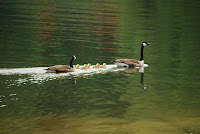Holidays like the Fourth of July cause me to become reflective. In a society currently sensationally polarized by a number of issues, I hope tomorrow can be a day that we can all share with, I hope, less rhetoric about what separates us and more about what makes us all Americans.
Quite by chance, I am currently reading a book about the Battle of the Little Bighorn.
The Last Stand , written by Nathanial Philbrick, is a well-researched and well-written account of that infamous meeting between the Seventh Cavalry, led by George Armstrong Custer, and Native Americans, led by Sitting Bull and Crazy Horse. Philbrick has obviously done his homework, checking his sources and collecting facts. He has a knack for turning all of that into a fascinating series of stories that all add up to the larger saga, detailing not just what went on in battle, but what was going on in the country.
One of the revelations of the book for me was finding that Sitting Bull, learning that white men were headed to his village, initially told his warriors to hold back because it might be an effort to make peace. As we all know now, it was not a peace initiative and it ended badly with plenty of blame to go around on both sides.
Somehow, this story of two cultures at odds in 1876, the year of our nation’s centennial, seems timely. Each side believed it had rights, including the right to its own beliefs. Both were frustrated by the other side’s inability to “live and let live.” It’s a parable for our time in that our search to protect our rights seems to require that, in order for one side to be right, the other must be proved wrong and, often, denied its rights. Then, as now, uncertainty engendered fear and fear drove actions that had disastrous results.
Many of those killed near the Little Big Horn River that late June day in 1876 were veterans of the U.S. Civil War, including Custer and several of his family members who rode with him. Those men had endured horrific battles over whether the United States would even survive as a nation less than a hundred years after its formation.
"If the Great Spirit had desired me to be a white man he would have made me so in the first place. He put in your heart certain wishes and plans, and in my heart he put other and different desires. It is not necessary for eagles to be crows." -- Sitting Bull
We were then, as we remain today, a nation of immigrants, a human tapestry of differences. Philbrick describes one point in the battle in which several of the Seventh Cavalry took refuge in a buffalo wallow, among them an Italian, an Irishman, a quarter-blood Blackfoot and an American of French Canadian heritage. Though Sitting Bull was of the Hunkpapa people, his village that day included members of many tribes, including Cheyenne, Oglala and Minneconjou and others.
The hostilities then, as now, were about who were the “true” Americans. The progress of settlers and gold miners ever westward spoke to their dreams of a life better than the one they had known. With them came their sensibilities about civilization and railroads that would bring more of them faster than ever before.
On the other hand, their dreams had created a tipping point for the nomadic tribes whose lives depended on keeping their natural lands free for buffalo herds and other game. Many of the warriors who rode against Custer’s men had left reservations to gather with Sitting Bull because there was not enough food on the reservation to sustain their families.
Laws were made and broken. Treaties were signed and broken. Out of the brutal defeat suffered by Custer and his troops came not a victory to be savored by the native warriors, but instead a stronger and equally brutal crackdown from the growing majority white population in the nation.
Maybe what America will always be about is this tension, this angst about who among us are the “true” Americans. At our best, we come together in moments of great challenge. At our worst, we splinter into factions, each so hungry to have dominion that we must diminish any who disagree. Somewhere in the middle there is, we must hope, room to respectfully disagree about some things, while protecting always the rights of all, whether "eagles or crows."
Photo by Mike Lumpkin






















